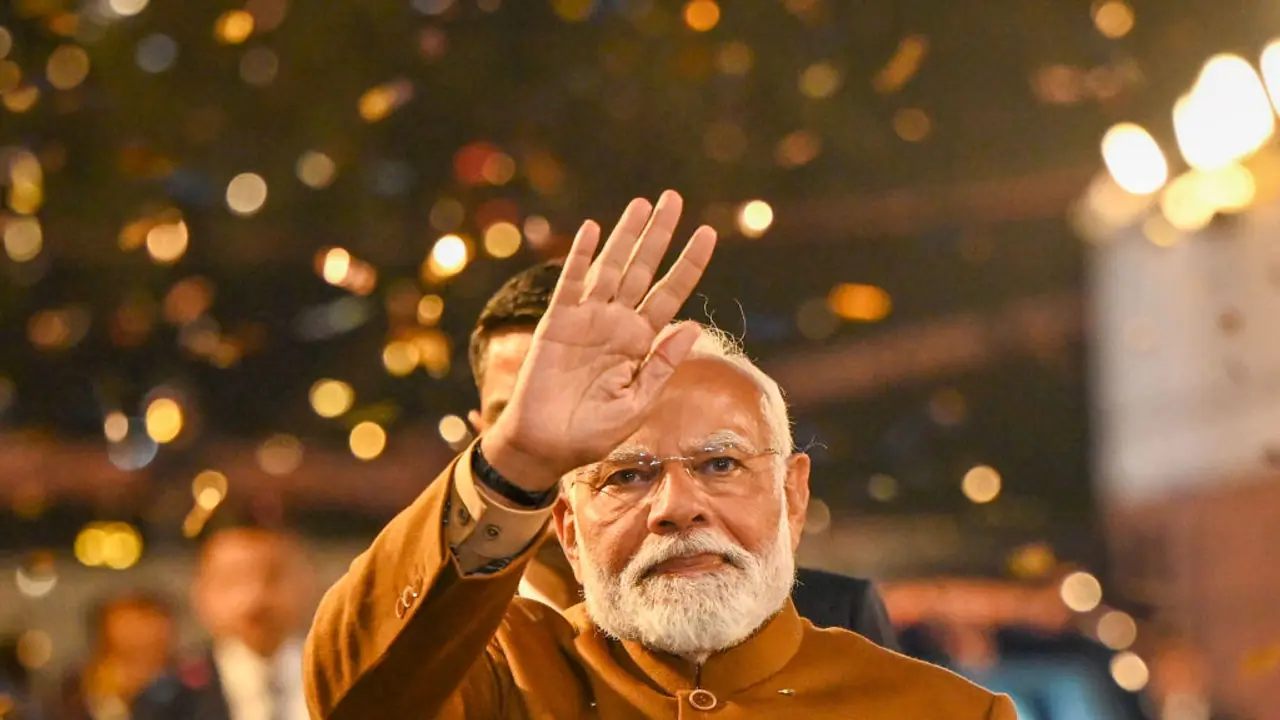Under PM Modi's leadership, BJP clinched 48 out of 70 seats, securing a dominant victory and proving that his influence can transcend local politics
Prime Minister Narendra Modi has once again proven his prowess, leading the Bharatiya Janata Party (BJP) to a historic victory in the Delhi assembly elections. The win marks BJP's return to power in the Capital after a 27-year hiatus, shattering the notion that Modi’s appeal is limited to national elections alone.

The Delhi polls were viewed as a crucial test of PM Modi's influence in state-level contests, especially given that the BJP did not project a local face and instead relied on the Prime Minister as the party’s sole mascot. Critics had long claimed that while PM Modi's national appeal was undeniable, his ability to sway voters in regional elections, dominated by local issues and regional identities, remained unproven. However, the results from Delhi have decisively debunked this myth.
BJP clinches 48 seats in Delhi Election 2025
Under PM Modi's leadership, BJP clinched 48 out of 70 seats, securing a dominant victory and proving that his influence can transcend local politics. The Prime Minister's campaign in Delhi was multi-faceted, combining national narratives of development with direct engagement on local issues such as pollution, urban infrastructure gaps, and cleaning the Yamuna.
PM Modi’s personal touch was evident throughout the campaign, with his rallies lauding not just national achievements, such as the construction of the Ram Temple in Ayodhya and the abrogation of Article 370, but also highlighting specific concerns for Delhi's residents. His speeches resonated with urban voters, promising a modern city with enhanced mobility, heritage preservation, and improved infrastructure.
PM Modi's limited regional appeal dispelled
This victory also challenges the narrative that Modi’s influence does not extend to regional politics. While the BJP’s 2014 and 2019 Lok Sabha victories reinforced Modi's image as a national leader, defeats in the 2015 and 2020 Delhi assembly elections to Arvind Kejriwal’s Aam Aadmi Party (AAP) had raised doubts about his ability to win at the state level. The 2025 Delhi result counters these perceptions, reinforcing the idea that Modi’s political strategies are adaptable to both national and regional arenas.
Moreover, the victory comes at a time when BJP’s national popularity appeared to plateau after the 2024 general elections, in which the party fell short of an outright majority. The Delhi win, alongside recent victories in Haryana and Maharashtra, is seen as a rejuvenation of Modi’s political aura, reaffirming that his leadership continues to sway voters in regional contests.
BJP’s campaign also capitalized on the alleged governance failures of AAP, particularly the corruption allegations against its leaders, which helped sway public opinion. Modi's promise to make Delhi a key part of his ‘Viksit Bharat’ vision, aligning local governance with national development goals, was well received by the electorate.
In the aftermath of the victory, Modi emphasized building Delhi as a "modern city" with a focus on urban development and infrastructure. The result not only dispels the myth of Modi’s limited regional appeal but also sets a new precedent for how national leaders can engage with state-level politics, combining personal engagement with national success stories and addressing local needs to secure electoral wins.
